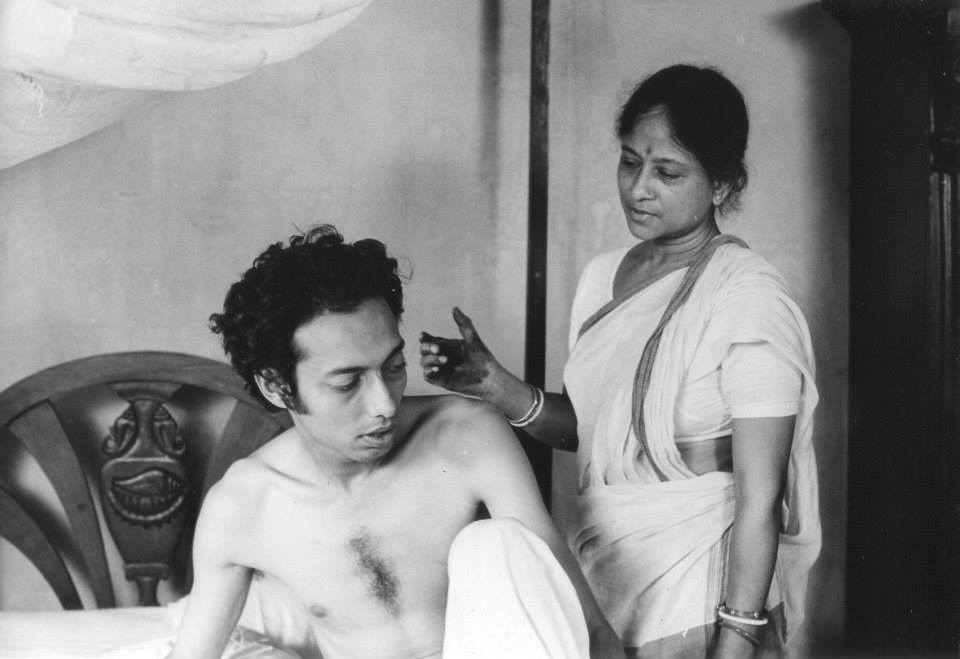Having an illustrious father can often mar the real appreciation one deserves. Probably people are always comparing the person with the icon. This can explain the fact that Sandip Ray, a director in his own right, never really got his due in terms of critical appreciation. I am not too sure but I think his Feluda films did good business at the box-office. But there is more to this director, and his films like Uttoran, Nishijapon and Monchora is a testament to that. And his subjects, besides the detective genre, too have been varied, from science fiction to romantic drama, ghost stories, humanistic tales (Phatikchand) to incisive social commentary (Uttoran) on the prevalent situation.

‘Monchora’ (Heart Burglar) is a 2016 film based on a story by Saradindu Bandopadhyay. It is a sweet romantic drama laced with mystery with an underlying message not to be judgemental about people, because an individual is a product of his circumstances and his resultant conduct bears a correlation to it. Bengali cinema regularly gives us gems like ‘Monchora’ keeping our faith alive that cinema from Bengal is still vibrant. The actors act superbly, and Abir Chaterjee as a petty thief who has a change of heart as the film progresses, excels in his role. Raima Sen is immensely likeable, and Paran Bandopadhyay and Saswato Chattopadhyay are brilliant as usual. June Maliah in a negative role is competent.
Rating: 4.1 out of 5







Umbertha (Marathi, 1982)
Posted: December 25, 2023 in Regional, Smita Patil, social commentary, Two Hundred Indian films, Women in cinemaThe difficulty of an educated modern woman finding a voice and her calling in life has not been explored in Indian films that extensively. Also the real picture of how many of the rehabilitation centers (for women in this film) in actuality runs as shady businesses for the powerful has been a rare subject in the cinema. These two-fold concerns makes Jabbar Patel’s 1982 Marathi language film UMBARTHA (The Doorstep) a distinguishing work embellished by the performance of the brilliant Smita Patil in the central role.
The film also highlights how the lofty idealism of those who set out to do good in this world gets shattered by the destructive elements that exists within the system. False allegations and victimization dogs such individuals every step of the way. Eventually they affect the dreams of the determined agents of change and leave them disillusioned. Through the protagonist Sulabha (Smita P) a city bred social worker who leaves her family temporarily and becomes the superintendent of a reformatory home at a rural area aided by her degree from Tata Institute of Social Sciences, the director JP explores several sensitive issues facing women in our society and even taboo topics for those day such as lesbianism. The director contrasts how the exploited women who faced oppression in the outside world themselves turn into being oppressors for their own kind within the rehab for immoral behavior such as when two of them were caught indulging in a carnal act.
There were a few scenes that seemed exaggerated to me. I couldn’t fathom how one mentally unstable woman could climb up to the top of a big building and positioned herself perilously on the roof (like Dharmendra in Sholay) with potential risk of the fall turning lethal when her rescuers were shown using a ladder to climb up to reach that same spot. The film directed by Jabbar Patel was based on a story ‘Beghar’ by Shanta Samil. It won the award for the Best Marathi film at the National awards that year. Smita Patil delivers a brilliant performance. The supporting cast includes Girish Karnad, Sulabha Deshpande, and others.
Rating: 4 out of 5